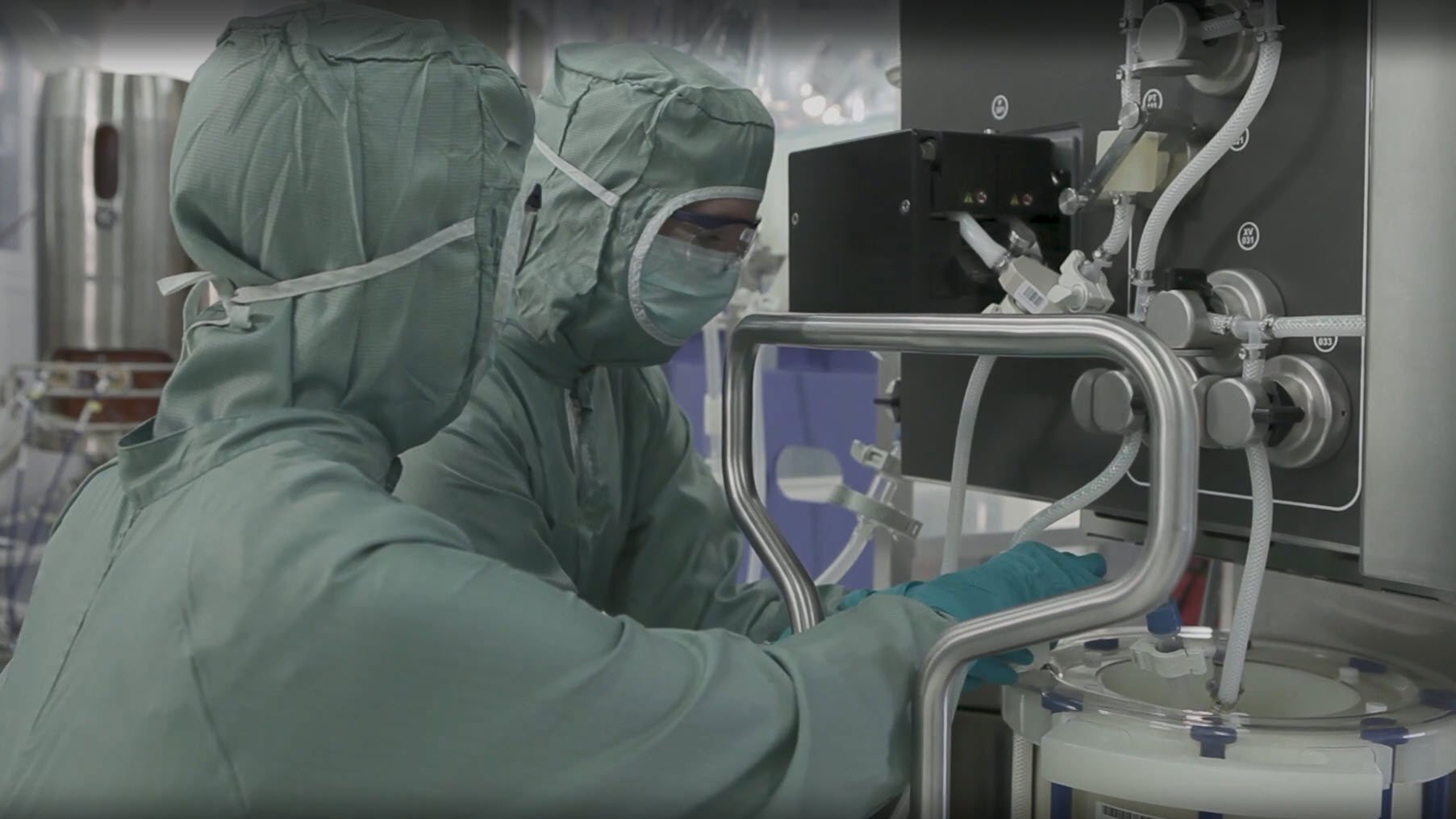The Common Problem with Uncommon Solutions
More Flexible, Scalable Systems
It takes time and money to develop and produce life-saving biopharmaceutical medications, so anything that can make production systems more flexible, scalable and quicker to implement can save these valuable resources.
This is why Cytiva has been collaborating with Rockwell Automation to streamline the process controls and automation of its bioreactors, FlexFactory production lines, and KUBio modular biomanufacturing units it operates worldwide.
Reducing Biopharmaceutical Costs
Bioprocessing applications include large-molecule and small-molecule processes. So, while traditional medicines are compounded from molecules with less than 60 atoms, biopharmaceuticals like insulin have molecules with hundreds of atoms; flu vaccines have more than 100,000. This complexity makes development and upstream and downstream production of these newer biopharmaceuticals increasingly complex and costly.
Like most industries, biopharma is challenged by downward price and time-to-market pressures, and adapting quickly to changing market demands. It can take five to seven years to build a new facility and begin full-scale production. If a drug maker can implement a single-use bioprocess facility in 12-18 months, that can save money and time and ultimately get life-saving medicines to market faster.
Optimizing Bioreactors in FlexFactory Lines
Biopharmaceuticals can start small with one type of process control, but over time that may scale to much larger production runs requiring more extensive control. Cytiva needed a better, more consistent way to scale up.
Cytiva's work with Rockwell Automation has provided a flexible scalable platform that supports this growth. It offers many benefits, including a scalable line of Figurate bioreactors in its FlexFactory family, which can be deployed in its KUBio prefabricated modular clean rooms.
Automation Benefits Bioprocesses
Cytiva's strategy for addressing these multiple challenges in its biopharmaceutical application includes taking advantage of automation, flexibility and efficiency that will:
- Optimize uptime due to system redundancy
- Reduce maintenance and training by using a common framework
- Optimize yield with centralized data trending and alarming
- Reduce regulatory exposure with GAMP-proven and CFR-compliant designs
Cytiva adopted the PlantPAx® modern DCS to automate its bioprocess equipment; make their data available by integrating it with applicable manufacturing execution system (MES) applications and electronic batch records (EBR); and also provide it to cloud-computing services.
The benefits include 10-20% increases in production throughput, availability and production employee efficiency, as well as 5-30% decreases in energy use, scrap material, batch release time, maintenance, and downtime investigations.
Cytiva is also working with Rockwell Automation and PTC to create augmented reality (AR) operator support tools. For example, its operators can use AR image capture to display and manipulate images that show pH, dissolved oxygen, carbon dioxide, control cabinet performance and other crucial parameters more quickly. PTC Vuforia® Chalk™ software even allows operators and supervisor to mark up images to point out details that need to be addressed.
Learn more about our automation, process control, and information solutions in biotech industry.


